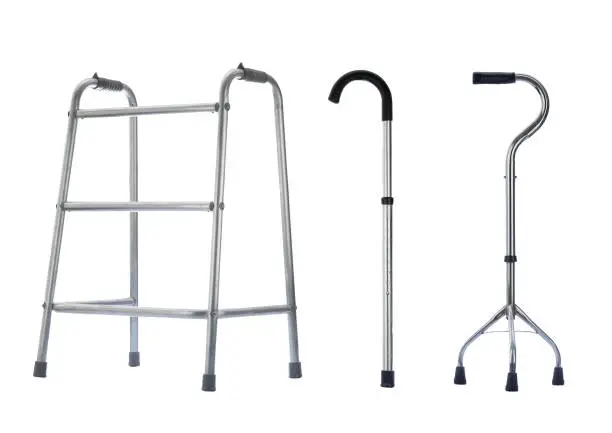Rainy Days Ahead
That’s the message the bottom
right hand corner of my desktop is trumpeting today, complete with a tiny
picture of an umbrella.
Rainy days right now.
I would append this statement to the former because my life has been somewhat showery for a
while now, with no signs of letting up.
I’m not talking about weather, of course. I’m talking about
the pulse of the country and my own personal pulse, so to speak.
When I demonstrated an interest in writing as a young girl,
my parents gifted me a little book called The
Writer’s Eye. I never read the thing, being ever resistant to
learning about the writing craft and much preferring to just do it.
That said, I may have finally internalized the idea that, to a writer,
everything is grist for the mill.
Such is the case with the notification on my desktop this
morning. Those little weather alerts are probably there every day, but I don’t
usually take notice. This one for some reason jumped out at me, perfectly
characterizing, in my humble opinion, the state of the nation and my particular
state at the moment.
Choosing Sun
Before we start tuning our violins, let me qualify my comments. Lest my words seem like a plea for sympathy, I want it known that I’m
not feeling sorry for myself.
Well, not too much. It’s a tough habit to break,
after all, and at one time in my life, I was a master self-pitier. But in
recent years, I’ve come to realize the truth of Viktor Frankl’s statement (emphasis mine):
“We who lived in concentration camps can remember the men who walked through
the huts comforting others, giving away their last piece of bread. They may
have been few in number, but they offer sufficient proof that everything can be
taken from a man but one thing: the last of the human freedoms – to choose
one's attitude in any given set of circumstances, to choose one's own way.”
In searching for Frankl’s attitude quote, I found a mountain
of inspiration from this remarkable psychotherapist, including the little
gem quoted below (emphasis mine). Little did this Holocaust survivor know how ahead of
his time he was, given today’s rampant
support for physician assisted suicide. I suspect this brilliant man,
who survived horrors that stagger the imagination, would be appalled at the
prevalence of so-called “death with dignity”:
“But today’s society is characterized by achievement
orientation, and consequently it adores people who are successful and happy
and, in particular, it adores the young. It virtually ignores the value of all
those who are otherwise, and in so doing blurs the decisive difference between
being valuable in the sense of dignity and being valuable in the sense of
usefulness. If one is not cognizant of this difference and holds that an
individual’s value stems only from his present usefulness, then, believe me, one
owes it only to personal inconsistency not to plead for euthanasia along the
lines of Hitler’s program, that is to say, ‘mercy’ killing of all those who
have lost their social usefulness, be it because of old age, incurable illness,
mental deterioration, or whatever handicap they may suffer. Confounding the
dignity of man with mere usefulness arises from conceptual confusion that in
turn may be traced back to the contemporary nihilism transmitted on many an
academic campus and many an analytical couch.”
These are the kinds of things we need to read to drag
ourselves out of the quagmire that sometimes characterizes life.
While I have grave concerns for the shape our country is in
and, secondarily, find myself in a set of somewhat dreary circumstances, for
once in my life – and maybe this is the definition of maturity – I’m seeing
things with a sort of objectivity that encourages me.
For years I’ve been advising fellow believers to try to view
things through God’s eyes. “I wonder what God’s trying to teach you” is a
frequent refrain from my lexicon. I think this phrase is finally becoming less
a platitude and more a reality for me.
What a blessing!
Fifty Per Cent
How on earth did we get from weather reports to percentages?
Trust the process.
A ways back I jotted down notes for a possible blog article
– this blog article. I had been noticing silly things that were in the
50 per cent range, satisfaction-wise. For example, I had just replaced one
framed piece of art – I’m looking at it now – with another. My desk sits in a
sort of alcove that offers a convenient wall which invites decoration. A friend
was collecting secondhand items to be sold for a worthy cause, and I saw this
as an opportunity to swap one picture for another that I preferred. My friend
collected the cash for my discard, and my workspace picked up something more
pleasing to my eye.
Except for one thing.
Remember I mentioned that I work in an alcove? Well, my desk
is heavy, right down to its glass top, and the computer tower and monitor that
sit atop it don’t easily lend themselves to rearrangement.
You can see where this is going.
I didn’t want to do anything silly like ask for help, so I
scaled a ladder and hoped for the best.
The best, as it turned out, meant: a) the glass top didn’t
break; b) computer components weren’t knocked off; c) picture was successfully
mounted; but d) it wasn’t centered.
See what I mean? The angle makes it look crooked; it really isn't. But it is definitely off center.

And you know what?
I’m living with it.
This is actually the second such mounting job I’ve done in
recent months which has turned out less than perfectly. Things like this used
to really bother me. I would remove nails and readjust (who sees a few extra
holes once the art is hung?) until I got it just right.
Such precision no longer holds a place on my priority list.
I don’t want to say I’m too old for that, but, well, you
know.
So, I got 50 per cent of what I was looking for. Actually, I
got 75 per cent, if you consider that points a, b, and c worked out well, and d
was the only defector.
I’ll take it.
I could share other examples where I’m looking to make lemonade
out of sour lemons.
Case in point: like many women of my vintage, I’m in pretty good shape for
the shape I’m in.
That said, I have a few besetting ailments, but in the big scheme of
things, they’re pretty manageable. I won’t bore you with the details, but
suffice it to say, I’m grateful that when one condition flares up, the others –
for the moment, anyway – have been remarkably well behaved. So, instead of
dealing with arthritic aches along with asthma adventures, nine times out of
ten, one is under control while the other is making its presence known.
Again, attitude is going to be key in how I view these
things. I can either lament, “Oh, man, this cold is going into my chest, so now
I’m going to have to break out the nebulizer machine and pull out all the stops
again!” OR I can consider the flip side. To illustrate, I'll refer to a guidance counselor I once knew who encouraged students to take the “at least” perspective when they were feeling upset. For example, “My activities
may be curtailed because of this respiratory infection, but AT LEAST I’m
walking without
a cane for the moment!”
Getting Through versus Going Through
There’s always a valley lurking at the base of every peak.
Will we focus on the valley instead of enjoying the peak?
One of my family members has had plenty of adversity. Life-threatening
health issues, financial setbacks, devastating family problems. This individual
has consistently modeled a “bounce back” response to every challenge. I have
watched with admiration the steadiness and resilience which have characterized
this person’s response to surgeries, business misadventures, even death (and
near death) of loved ones.
That’s how I want to be when I grow up.
I want to learn to go through life’s obstacles with
grace and faith.
I don’t want to just get through things that feel
like suffering. I want to go through life’s vicissitudes knowing, as God’s
child, I’m right smack in the center of His will, despite appearances to the
contrary.
When I searched my blog for an article written back in 2012,
entitled Through (which,
incidentally, was written during a time of severe testing in my life), I stumbled
onto a whole slew of my writings on the same subject. I offer them here in
the hope that one or all may lighten the burdens others are carrying.
Because that’s the point, really, when you get right down to
it. Like Christian in John Bunyan’s classic Pilgrim’s
Progress, we can expect trouble. It’s going to come whether we like
it or not. Bunyan knew of what he spoke; he wrote the book during his 12-year
imprisonment, during which time he supported his family by making
shoelaces.
Bunyan understood the truth of Hebrews
10:36-39:
“For you
have need of endurance, so that when you have done the will of God you
may receive what is promised. For, ‘Yet a little while, and the
coming one will come and will not delay; but my righteous one shall live by
faith, and if he shrinks back, my soul has no pleasure in him.’
“But we are not of those who
shrink back and are destroyed, but of those who have faith and preserve their
souls.”
Bunyan’s faith enabled him to live out the truth of Psalm 112:6-7:
“For the righteous
will never be moved; he will be remembered forever. He is not afraid
of bad news; his heart is firm, trusting in the Lord.”
Rejoice, in Spite of…
Rainy days may lie ahead, but so does our hope of heaven. I’m
looking for the kind of faith that sustains the pastoral staff at my church. These folks have an
uncanny knack for balancing pain and joy, even to the point of advising their sheep to “thank God for everything!”
And they mean everything. This collective group and their wives have experienced plenty of hardships since I've known them. Their resolve never changes. They truly do thank God for everything, ever seeking whatever growth is to be had within their changing circumstances.
Anyone who has been part of a
Christian community knows, unfortunately, that the church is a breeding ground
for love but can also include betrayal. It’s been said the church is the only
army that shoots its own soldiers.
I wish I could prove this sentiment wrong, but I’ve been
around too long to deny the truth of its caustic commentary.
I would ask my pastoral team to reveal the secret behind their
smiles, but they would simply refer me back to the Book of all books.
They’ve learned not to make their happiness contingent on things
going their way. They’ve weighed Jesus’s words and example, put them to the
test, and found them more than adequate to catch every tear that accompanies
the ministry.
Tears are the stuff of rainstorms, minus the salt, I
suppose. They are also evidence of God’s hand in our lives, but He doesn’t leave us
to dissolve into them. Rather, in His providence, He allows clouds to break over
our lives only insomuch as they are necessary for our growth.
What a savior.














